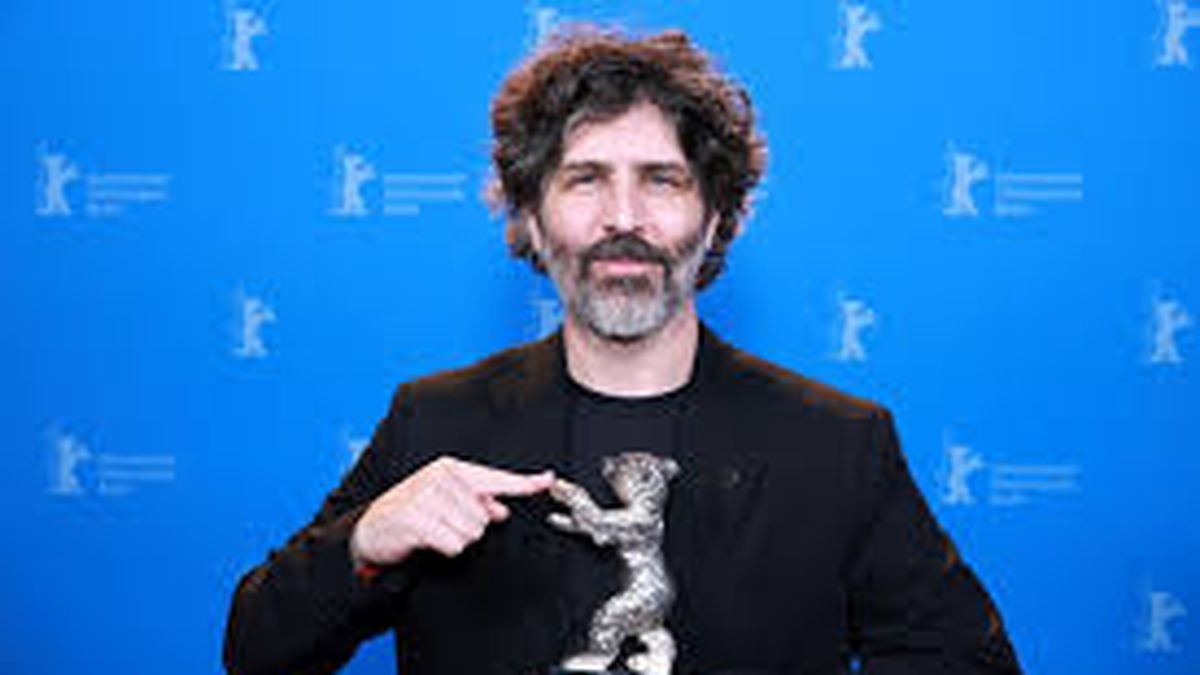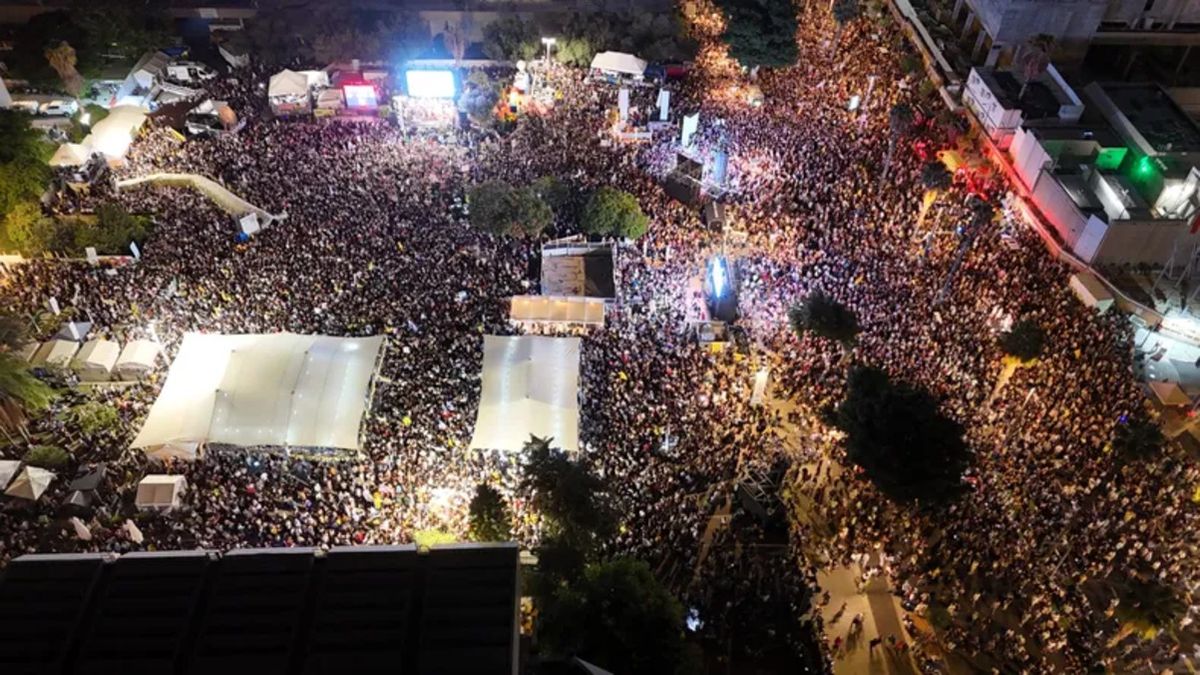Berlin – The ten days of 75 Berlinalewhich concluded on Saturday, rapidly flew through the sky of this endearing city linked to the history of cinema. In this decade of the 21st century, the centenary of German expressionism is fulfilled, whose visual impact is still alive. What is the brand new “Nosferatu” by the American Robert Eggers, candidate for several Oscars this weekend, shot entirely in Budapest, but a conversation with the magnificent film by FW Murnau, with which the versions of Werner Herzog and Coppola, of the seventy and ninety, and other imitations more pedestrian?
Berlin and cinema is an accessible story because you can visit the UFA studies in the twenties, where classic Lubitsch, Murnau and Lang titles were filmed. They are called today Babelsberg, the name of the town on the outskirts of Berlin. There the continuity of this film complex is palpated, managed by the Nazi government imitating the Hollywood industrial model. In the DDR it was renamed as defa studies, in the Soviet style. Today it is still a film and television production center, frequently used by foreign producers. The second season of the German series Neo-Noir “Babylon Berlin” (2019-2025) takes place in the golden age of UFA, and is shot there. The historical and the goal shake hands.
It is still early to evaluate the management of the new festival team, headed by Tricia Tuttle. The differences with the previous brief management – an artistic director and another administrative from 2021 to 2024 – were not noticed, at least on the surface. It will be evaluated how the replacement of some sections for others, the unification of activities parallel to the festival and the expansion of the European Film Market.
Festival logistics is now totally digital. The cell phone is the indispensable instrument for any activity, the first and main to obtain the tickets to the cinemas through the festival website. In order not to be left behind, you have to be sharp with the login and password, have a good wifi or data and pay attention to the dates (the foreign journalist manages to the Ponchazos). To enter the cinema, journalists need to show the credential more digital ticket test, taken by cell phone, computer or tablet, which is received via email. Without email there is no entrance, because the festival employee has to scan the QR code of the digital ticket. And there is no possible appeal if the mention QR is stubborn not to appear; I go to the side and get out of the tail.
The digital world allows you to be efficient and organized, but in the experience of recent years the festival has lost the connection that circulated the information via paper. For example, the Who’s where, the alphabetical guide of the guests, press and market participants made with the technology of the 15th century Gutenberg was replaced by a database, inaccessible without the electronic devices of the digital revolution. Know who is and where it takes time. The Festival published a daily magazine in English with useful information, the market program, criticism and interviews that facilitated a general orlinate orientation.
They are now communicated from the festival, via email. There is no need to go through the press office, which has ceased to be an area of information and camaraderie. The Berlinale website (login and password, of rigor) allows access to videos of press conferences and other activities, useful for gathering information. But all this works as a menu to the letter, accommodated to personal tastes and needs, with the consequent atomization describing sociologists today. From the pandemic, changes in social habits have been accelerated, and it is not uncommon to see that before and after a press projection, the eyes are calmed cell phone screen. There is no lack of the fool that opens the phone during the film, causing murderous instincts in seat neighbors.
The passionate talks about newly seen films have also been cushioned, a good way to enrich personal critical appreciations.
The gold and silver bears were delivered on Saturday at Berlinale Palast, and the Argentine film “The message”written and directed by Iván Fund- one of the 19 in the competition- took the jury prize- Jury Prize. Informally this award indicates that the feature film was a serious opponent for the gold bear. It is not surprising, because a festival with the Berlin tradition wants to highlight works made on a small scale, of aesthetic and human value, with limited resources. That is why it was interesting that the Brazilian film “or last blue”, a costumbrista comedy with a surprising science fiction touch and a warm but not sentimental message about the elderly, has received the Grand Jury Prize. The deliberations will have been heated and intelligent. One can imagine our compatriot Rodrigo Moreno, member of the jury, throwing water for the South American mill. Based, since the two films bet on an author cinema that is always appreciated.
The words with which Iván Fund He thanked the prize entering the Argentine political arena with a missile precision. At the press conference and in the Berlinale Palast ceremony, the director spoke of the situation of the National Institute of Cinematographic Sciences – INCAA that has suspended economic support for local cinema. Within the general framework of the cuts to public spending and the rearrangement of the economy, the organism stopped fulfilling its function. The director made a direct appeal to the government, without giving names, urging saving the Argentine cinema, received the applause of an audience in tune.
How he observed once André Malrauxthe writer who Charles de Gaulle appointed Minister of Culture, “Cinema is an industry that sometimes disguises art”. The French and the British resolved decades ago the challenge of preserving the image of the national beyond the economic horizon. The BBC, the National Center for Cinematography and Audiovisual, and similar institutions in Canada, Spain, Mexico and Argentina since the sixties, understand that national cultures have to protect themselves; They are the mirror where we look.
The issue to talk is how market forces are combined with the cultural production of a country. The roads are varied and complex, since there is no unique formula: the BBC model and the corporation for public broadcasting in the United States (only radio and television), is different from that of France or Germany, which have varied organisms at the level at level State and regional, and even binational as art, the German Cable Cable channel, which manages public funds and is an associate producer of a good film number in the competition.
Broadly speaking, a policy of promotion to the national screen establishes subsidies to the production, distribution and exhibition of film (there are various ways of implementing them). It also develops promotion strategies, such as awards, contests, festivals, weeks of cinema in the country and abroad. A look at the website of the National Institute of Film and Audiovisual Arts gives a good idea of how the system works in our country.
There is a second aspect to consider in the relations between the State and the promotion and assistance to national cinema: when the State is strong and weak institutions, the cinema becomes a political instrument of the government and easily adds a propaganda function to its primary objective. This is the case of China and its control of the audiovisual industry – all mass media are managed by the Communist Party of that country, which is the one who dictates cultural policy and applies it to Rajatabla. There is nothing more to see a film of the so -called “patriotic cinema” to understand how the system works. The two Chinese films in the competition – “The Wire Girls” and “Living the Land” – show the “entering” between producers and the censorship agency on the issues that can be touched. In Argentina, according to times, there has been a pairing between the Film Institute, the type of projects promoted and the ideas of the government on duty.
The brief run from Iván Fund He did not intend to be a master class on the support of the State to the national cinema, but launched the issue to the ring. A conversation about how to support it, without being an ideological instrument of successive governments was what led to the creation of our National Cinema Institute. Well seen, the prize in Berlin gives Iván Fud a good platform to propose that the chainsaw can be careful, without cutting the tree.
Source: Ambito
I am an author and journalist who has worked in the entertainment industry for over a decade. I currently work as a news editor at a major news website, and my focus is on covering the latest trends in entertainment. I also write occasional pieces for other outlets, and have authored two books about the entertainment industry.




